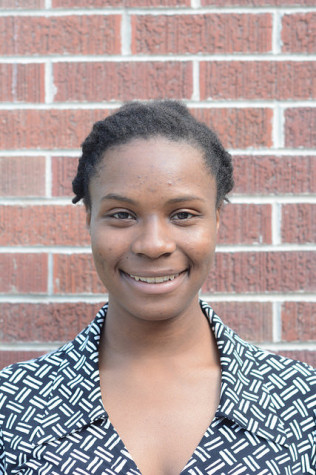BSU matters, no matter your ethnicity
October 5, 2015
Handing out fliers for the Black Student Union (BSU) on Monday was a more complex experience than I expected. It seemed like a simple enough mission: get students to come to the information meetings on Tuesday at 5 p.m. or Wednesday at 6 p.m. in Patterson 248. But which students? While it seemed most practical to ask those who “appeared Black” to join the BSU, I found myself wondering if the entire endeavor wasn’t also an experiment in racial profiling, where I attempted to pick out students from the crowd most likely to possess African heritage.
Ultimately, I approached those who seemed most receptive, which included Black students, white students, biracial students and students of other ethnicities. Because the BSU is important not only to those who most obviously “seem Black,” or those who identify as Black, but to everyone who wants to celebrate Black culture, have a fuller understanding of American and world history and better relate to those from different backgrounds in the society we share.
Student organizations such as BSU provide community, advocacy, and safe zones for people of similar backgrounds and experiences. For Black students, BSU can be a haven — a piece of neutral territory in which their identity is affirmed and they can speak uncensored about the desires, challenges, and struggles particular to the Black experience. However the value of the club is greater than the simple opportunity to let our locs down.
This year BSU has adopted the motto, “Unify. Educate. Celebrate.” It serves as a model for the goals of each quarter this school year, but it also speaks to on-going needs within Eastern’s Black community.
“We want to unify as Black people on this campus,” said Dara Clay, BSU interim treasurer, during the informational meeting on Tuesday.
BSU goals for the fall include bringing together the Black population of BSU, as well as other students of color and their organizations, in a coalition of self-love and empowerment.
For winter, the BSU wants to take advantage of the whole quarter, with special emphasis on Black History month, to educate students of color about their history, their contributions to the world and the oppression that has excluded them from both the history books and the western cultural narrative.
While BSU, like all of Eastern’s clubs, is available to everyone, it does have a specific focus.
“You don’t have to be Black to be part of BSU, but you do have to be pro-Black,” said BSU president Joshuena Williams, who went on to explain that most “world” history classes in both high school and college focus on the history of Europe and those of European descent, but fail to mention significant contributions from people of color, such as the extensive libraries of Timbuktu, the history of written language, philosophy and mathematics on the African continent, or even the successes of Black and brown peoples in Europe and United States.
In the interest of education, Williams plans to have regular workshop and lecture meetings, where members and guests can present on Black history from their perspective of expertise. Students will have the opportunity to share their knowledge about Black music, poetry, food, issues of oppression, cultural suppression and community development, local scandal and news of world import.
This education serve to bring greater awareness to the students of Eastern, and empower them as self-advocates, community members and activists in the greater Spokane community.
Finally, in the spring quarter, BSU plans to celebrate — to eat, drink, play games and generally revel in the richness of Black culture.
BSU is an important organization for Black students, students of color and anyone who wants to better understand the diversity of the Eastern community. Another information meeting is being held at 6 p.m. Sept. 30 in Patterson 248. See you there.








